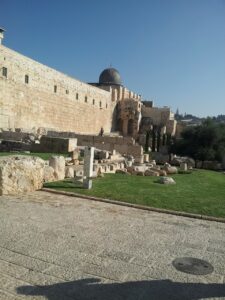 Mainstream churches across America are becoming concerned with the loss of their members. Data shows that approximately 80 million Americans, roughly 40 percent of the United States population, are now unchurched.. A recent Gallup 2020 Survey concluded that for the first time since 1937 when Gallup started their polling, a majority of Americans do not belong to a church, synagogue, or mosque. This same survey determined that most Americans do not consider religion to be important to them. Most of the decline attributable to increase in percentage of people who profess no religion.
Mainstream churches across America are becoming concerned with the loss of their members. Data shows that approximately 80 million Americans, roughly 40 percent of the United States population, are now unchurched.. A recent Gallup 2020 Survey concluded that for the first time since 1937 when Gallup started their polling, a majority of Americans do not belong to a church, synagogue, or mosque. This same survey determined that most Americans do not consider religion to be important to them. Most of the decline attributable to increase in percentage of people who profess no religion.
Yes, there was a pandemic that forced many to shelter in place. However, while a man-made disease swept our planet, a culture of hatred was busy taking root. It is called by many fancy names such as “Woke Totalitarianism” and the “Cancel Culture.” For sure, we are witnessing the “The Great Silencing of America.” Spin control is nothing more than the act or practice of attempting to manipulate the way events are interpreted by others and this Spin is aimed directly at conservative beliefs, the Church and its members. There is increasing safety in silence and little incentive to step out and share one’s faith as a witness to Christ. The world tried to silence Jesus once before but that did not work out well for them!
The New Testament Greek word for “church” is ekklesia, which means “the called out ones.” In Greek society, the term was used almost exclusively for political gatherings. The Book of Acts records three instances of this secular usage of the term (Acts 19:3; Acts 19:39; Acts 19:41). In Athens, the word signified the assembling of its citizens for the purpose of conducting the affairs of the city. Moreover, ekklesia referred only to the actual meeting, not to the citizens themselves. When the people were not assembled, they were not considered to be the ekklesia.
The New Testament, however, uses ekklesia 109 times to describe of the community of God’s people. Although the word only occurs in two Gospel passages (Matt 16:18; 18:17), it is of special importance in Acts (23 times) and in the Apostle Paul’s writings (46 times). It is found twenty times in Revelation and only a few times in James and Hebrews. Therefore, based on the biblical use of ekklesia, “church” we can apply the word to mean any local assembly of people who profess faith in and allegiance to Christ. The New Testament created the universal church in (Acts 8:3; 9:31; 1 Corinthians 12:28; 15:9; and especially in the letters from Paul (Ephesians 1:22-23; Colossians).
Many people today maintain that the life, death, and resurrection of Jesus brought about the Kingdom of God, producing an overlapping of two vastly different worlds, and now the two worlds exist simultaneously. For clarity, we can call the other world, the “secular” world. This belief should bring us to rephrase our Gallop Survey Question, In our overlapping worlds, why are people leaving the “Church,” God’s world, for the other world? Many people, including Christians, have concepts about what the Church is. What exactly is the church? Is it a building where Christians go to on Sundays to worship? Is the church an organization, an institution of people who believe in Jesus Christ? Is it the Kingdom of God? To discover what God’s Church really is, let us look the Bible.
Although the Bible does not provide us an actual definition of worship, one is left with the general impression that to worship God is to ascribe to Him the supreme worth that He alone deserves. The role of worship is, of course, assigned to the Church. At the heart of the expression of the Church’s faith are the sacraments of Baptism and the Lord’s Supper. The former symbolizes entrance into the church while the latter provides spiritual sustenance for its members.
To understand the issue of church attendance more thoroughly, we need to first start with the original Biblical mission statement of the Church. Here are two of the key biblical goals to measure the Christian Church against:
(Acts 2:42)– “They devoted themselves to the apostles’ teaching and to fellowship, to the breaking of bread and to prayer.”
(Matthew 28:1.9) – “Therefore go and make disciples of all nations, baptizing them in the name of the Father and of the Son and of the Holy Spirit,”
These are somewhat different goals, one internally focused on equipping disciples and providing comfort/safety for Christian fellowship. The latter goal from Matthew is outwardly focused, much more like a mission statement. Therefore, since members cannot remain insulated within the Church, they will need skills to help survive in the secular world. God has called us to make a difference out there! However, you need skills first. “If you are told to you need to get to the other side of the lake, someone needs to teach you to swim first!”
Seeking comfort and safety of like-minded fellowship is understandable. Christians find themselves forced to live in a world, the wrong world, filled with lunacy. War, disease, poverty, drugs, a diminishing value on life, the pursuit of money and power saturating society. The lust for power driving political policies that weaken economic opportunity and freedom. What kind of world is this? The secular world is Satan’s world. However, our two worlds are co-mingled, and the Church must survive in both!
There is an insightful saying from a poem, it is better to rule over, be like a king in hell than to serve somebody as a slave in heaven. The famous saying “Better to reign in Hell than serve in Heaven” comes from a monologue delivered by the character of Satan in John Milton’s book, Paradise Lost, originally published in 1667. Satan takes the position that it is better to be in a bad place and rule over that place rather than to go to a good place and work like a servant there. If you want to really understand what is happening in our society today, it is not lunacy, it is the lust for power and rule; a choice that is knowingly made by those who seek it.
When the epic scene begins in the poem, Satan, and his legions of fallen angels have already been defeated by the God’s angels and have been cast into the depths of Tartarus, which is described as horrible, dark, fiery place full of pain and suffering. This does not seem like the sort of place anyone in their right mind would want to rule. The problem is that the fallen angels were so deluded and filled with their own self-worth, they honestly thought they would win the war against God. Now, here they are, defeated and literally condemned to eternal damnation in Hell. There is no known escape. While you may call this poem a fictional story, it overlays what God tells us through His own Word about evil.
Satan knows he needs to keep these fallen angels on his side. When he speaks these famed, immortal words, he is talking to his fellow fallen angel Beelzebub. Throughout the poem, Satan’s greatest talent is shown to be his rhetoric; he can twist the truth to make even the wisest of people believe the most inane things. Have you listened to the news media or your government’s press conferences lately? Satan tries to Spin it this way: God’s Kingdom may be paradise, but you must serve God. Here in Hell, things may be awful, at least we are not in servitude. Evil has a sophisticated message and it always sounds good.
(Romans 1:21-25) – “For although they knew God, they neither glorified him as God nor gave thanks to him, but their thinking became futile, and their foolish hearts were darkened. Although they claimed to be wise, they became fools and exchanged the glory of the Immortal God for images made to look like a mortal human being and birds and animals and reptiles. Therefore God gave them over in the sinful desires of their hearts to sexual impurity for the degrading of their bodies with one another. They exchanged the truth about God for a lie and worshiped and served created things rather than the Creator who is forever praised Amen.”
To understand the Church today, we must ask, has it been teaching Christians not only to change this world but how to survive in this blended world? Is the reality of both worlds fully understood? Is the Church sticking to its Mission?
(I Peter 3:1-5) – “But in your hearts revere Christ as Lord. Always be prepared to give an answer to everyone who asks you to give the reason for the hope that you have. But do this with gentleness and respect,”
First, we see the inward focus, the gathering of people for worship, sacraments, and preparation. However, to be making disciples of “all nations”’ Christians need to survive in a world filled with lunacy, deceit, and rhetoric. While a body of like-minded people is always a comfortable place to be, the mission says nothing about comfort. It defines purpose, training, and practice. The process of living in a jointly shared world is not an easy thing to do. If you are not convinced that there is an issue, then ask yourself how leaders are chosen year after year that spend money they do not have (Biblically an unsound practice) or support abortion under the pretext of personal choice and health and fund it with your taxes (Biblically called murder). How is that for Spin? Should not the Church be helping its members with the choices necessary to not only survive in a secular world but then to act more like servants to this world?
All throughout history, humanity has fought to maintain freedom so that the human spirit can be joyful and happy. This vision is not possible to achieve unless the Church’s members are equipped to be different, not only living in the secular world but sending the secular world a clear and consistent message, especially for those who lead in it.
(Ephesians 3:10) – “His intent was that now, through the church. the manifold wisdom of God should be made known to the rulers and authorities in the heavenly realms.”
If then, people are leaving the institutional churches, they are being pulled there by the secular world’s dazing appeal, its untruthful Spin. An institution does not save people, only Christ can. That is the message the Church is called to shout out! Whose job is it to tell them the truth, God’s Truth? Ours of course. And just to leave you with one more sobering thought, here is some last words from the Apostle John on an institutional church that failed to understand their mission:
(Revelations 3:14-22) – “To the angel of the church in Laodicea write: These are the words of the Amen, the faithful and true witness, the ruler of God’s creation. I know your deeds, that you are neither cold nor hot. I wish you were either one or the other! So, because you are lukewarm – neither hot nor cold – I am about to spit you out of my mouth. You say, ‘I am rich’ I have acquired wealth and do not need a thing.’ But you do not realize that you are wretched, pitiful, poor, blind, and naked. I counsel you to buy from me gold refined in the fire, so you can become rich and white clothes to wear, so you can cover your shameful nakedness,’ and salve to put on your eyes, so you can see. Those whom I Love I rebuke and discipline. So be earnest and repent. Here I am! I stand at the door and knock. If anyone hears my voice and opens the door, I will come in and eat with that person, and they with me. To the one who is victorious, I will give the right to sit with me on my throne, just as I was victorious and sat down with my Father on his throne. Whoever has ears, let them hear what the Spirit says to the churches.” “He who has an ear, let him hear what the Spirit says to the churches.”
Contemplations
- Why do you think people are leaving the institutional churches?
- Items to Explore: Why do you or would you go to church? How fearful are people of the secular world and its ability to hurt people of faith? Is there too much emphasis from the institutional church on facilities and money?
- Why do you think it is important to include the family, children in any program geared to equip people for secular survival?
- Items to Explore: Children are eventually sent out, to college, into the world, they need to have the tools to defend their faith. What are the tools they need? What tools do adults need to live in a world full of Spin?
- Should people be open with their leaders and demand Godly behavior?
- Items to Explore: Why to people vote for the untrustworthy leaders year after year? Why do people support leaders that do not act in accordance with God’s Law?
- Is race being used to bring people together or divide them?
- Items to Explore: God’s Kingdom is filled with diversity. Yet, in our world, we are constantly told to be aware of a person’s color. Why is that? Does hatred based on race give a secular advantage to one group over the other?
- Why is it that people cannot tell Spin from Truth?
- Items to Explore: Does Evil take advantage of our weaknesses? Are people generally discerning enough to sort out truth from lies? Society is too self-centered. Are we addicted to self approval?
- How do you combat the Cancel, Woke Culture?
- Items to Explore: Is social media worth it? What causes a person’s opinion to become divisive with others? Is it now more important to be “right” than “righteous?”









